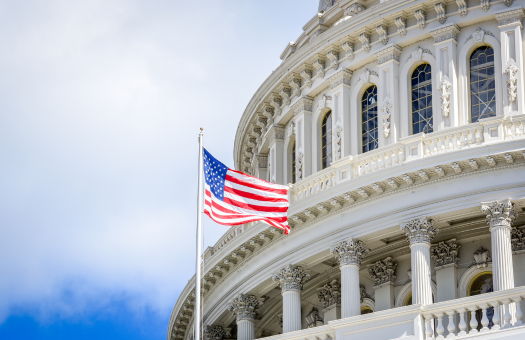One Big Beautiful Bill Act (OBBBA)
September 25, 2025 Author: Tess Downing, MBA, CFP®, Complete View Financial

The One Big Beautiful Bill Act (OBBBA) is an extensive 870-page economic package that touches nearly every aspect of personal finance—from income taxes and Social Security to Medicare, estate planning, and more. While the full text is dense and complex, the key takeaway is clear: the OBBBA will influence how households plan, save, and manage retirement dollars for years to come.
Let's break down the five most important provisions for pre-retirees and retirees.
5 Ways that the OBBBA could impact you
Tax Brackets & Standard Deduction Extended
- The 2017 Tax Cuts and Jobs Act (TCJA) tax brackets and higher standard deductions are now permanent.
- Standard deduction rises in 2025 to:
- $31,500 (Married Filing Jointly)
- $15,750 (Single)
- $23,625 (Head of Household)
- Seniors (65+) continue to receive additional deductions ($1,600 per spouse / $2,000 single).
- Example: Couple, both 65+, filing jointly = $34,700 total deduction.
Social Security Still Taxable
- The bill did not eliminate taxes on Social Security benefits.
- Up to 85% of benefits remain taxable, depending on income.
- Income thresholds have not been adjusted for inflation in 40+ years, creating a growing “phantom tax.”
Senior Bonus Deduction
- New temporary deduction for retirees 65+:
- $6,000 per person / $12,000 per couple.
- Can be combined with the standard and additional senior deductions.
- Example (2025, couple 65+, MFJ): $46,700 deduction total.
- Phases out at $150K income (joint) / $75K (single).
- Expires after 2028.
SALT Deduction Cap Increase
- State and Local Tax (SALT) deduction cap temporarily raised from $10,000 → $40,000 starting in 2025.
- Full benefit applies if MAGI is under $500,000.
- Deduction phases down above $500,000 and reverts to $10,000 in 2030 without further action.
HSA Contributions Still Restricted for Medicare
- Final bill removed proposed change allowing Medicare participants to contribute to Health Savings Accounts (HSAs).
- Medicare enrollees still cannot fund HSAs.
- Workaround: younger working spouse on a high-deductible health plan may make family HSA contributions ($8,550 in 2025 + $1,000 catch-up).
The Bottom Line
OBBBA delivers short-term wins for retirees (lower taxes, bigger deductions, SALT relief, estate planning clarity), but mixed in are some temporary perks (Senior Bonus Deduction, SALT cap, car loan interest) and some letdowns (Social Security remains taxable, no Medicare HSA fix). Careful planning is needed to capture benefits before deadlines, especially between 2025–2028.
